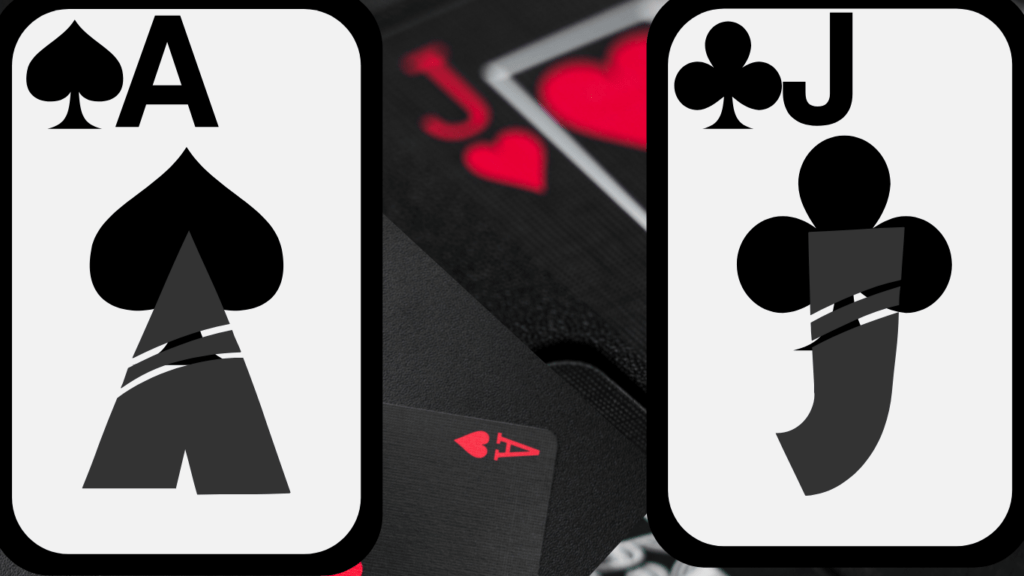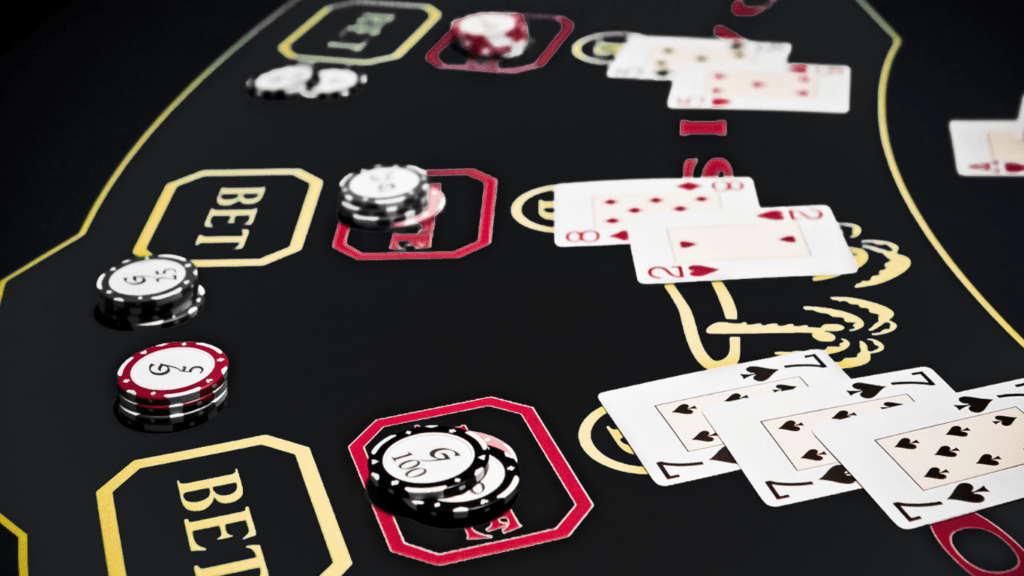What Is Card Counting?
Card counting is a blackjack strategy that helps players track the ratio of high to low cards remaining in the deck. It improves decision-making by predicting advantages mathematically during play.
The Basics of Card Counting
Card counting assigns a point value to each card. Typically, cards 2 through 6 get a +1 value, 7 through 9 are 0, and 10 through Ace are -1.
By keeping a running count, players know if the remaining deck has a higher proportion of high or low cards. A positive count indicates more high cards remain, benefiting the player.
Conversely, a negative count suggests a deck rich in low cards, favoring the house. The player adjusts bet sizes and playing decisions based on this count.
Myths vs. Reality
Many misconceptions cloud the understanding of card counting.
- Firstly, it’s not illegal; casinos may ban players who use it, but there’s no law against this strategy.
- Secondly, card counting doesn’t guarantee wins in every hand. It only shifts the odds slightly in the player’s favor over time.
- Finally, anyone can learn card counting with practice; it’s not an intrinsic skill only math geniuses possess.
How Card Counting Gives You an Edge in Blackjack

Card counting shifts the game’s odds slightly in the player’s favor when done correctly. By accurately tracking card values, I can make more informed decisions.
Understanding House Edge
House edge reflects the casino’s advantage over players in gambling games. In blackjack, the house edge typically ranges from 0.5% to 1%.
This edge means the casino expects to win a small percentage of total bets over time. Card counting aims to exploit the natural variation in the deck’s composition, reducing the house edge below its usual range.
Strategic Adjustments in Counting
Adjusting betting and playing strategies is crucial for effective card counting. I increase bets when the count indicates an excess of high cards (10s, Js, Qs, Ks, As) in the deck, maximizing potential gains.
Conversely, I lower bets when low cards (2s through 6s) predominate, minimizing losses.
Additionally, strategic adjustments in play—such as altering hit, stand, double down, or split decisions are based on the running count’s information.
When players maintain a high count, they adjust their strategy to favor situations that benefit from high cards.
For example, in a high count scenario, doubling down becomes more attractive due to the greater likelihood of completing strong hands. Furthermore, splitting pairs, like 8s and Aces, becomes more advantageous under favorable counts.
Popular Card Counting Systems
Card counting systems help players make strategic decisions in blackjack. Each system has unique mechanics and complexities that suit different skill levels and preferences.
The Hi-Lo Strategy
The Hi-Lo Strategy is one of the most widely used card counting methods. It assigns values to each card to help players track the ratio of high to low cards remaining in the deck. Cards 2-6 count as +1, 7-9 count as 0, and 10-Ace count as -1. This system helps in predicting the likely cards to be dealt next. When the count is high, there are more high cards left, giving the player a potential edge.
The KO Strategy
The KO (Knock-Out) Strategy simplifies card counting by removing the need to convert to a true count. This unbalanced system uses values similar to the Hi-Lo strategy with a slight variation: cards 2-7 count as +1, 8-9 count as 0, and 10-Ace count as -1.
Since no true count conversion is required, KO is easier for beginners. By tracking the count, players can make informed betting and playing decisions.
The Omega II System
The Omega II System is a more advanced card counting method. It uses a multi-level count and assigns different values to various cards. Cards 2, 3, and 7 count as +1, 4, 5, and 6 count as +2, 9 counts as -1, and 10-Ace with a count of -2.
This system provides a more precise count but requires more practice due to its complexity. Skilled users can potentially gain a higher edge over the house with Omega II.
Each system presents players with unique advantages, allowing them to choose the best fit for their experience and playing style.
Legalities and Ethics of Card Counting
Card counting sits in a gray area when it comes to legality and ethics. It’s essential to understand where it stands before diving into this strategy.
Is Card Counting Illegal?
Card counting, in itself, isn’t illegal under federal, state, or local laws in the United States. Casinos can’t have you arrested just for using your brain to track cards.
However, casinos are private establishments, and they have the right to refuse service to anyone they suspect of counting cards. They might escort you out or ban you from playing blackjack at their venue.
Casino Countermeasures and How to Navigate Them
Casinos use multiple countermeasures to detect and deter card counters. These include:
- Surveillance Systems: Casinos employ sophisticated cameras and software to monitor players’ behavior.
- Shuffling Machines: Automatic shuffling machines can disrupt card counting by randomizing the deck continuously.
- Frequent Deck Changes: Dealers frequently change decks to reduce the effectiveness of card counting strategies.
- Table Limits: Casinos might impose betting limits or change table rules to minimize potential losses from counters.
Navigating these countermeasures requires subtlety. Acting like a casual player, varying betting amounts inconsistently, and avoiding suspicious behavior can reduce the risk of detection.
Preparation and Practice
Card counting requires preparation and practice to effectively utilize the strategies discussed. Understanding the necessary tools and developing key skills are crucial for success.
Tools and Techniques for Beginners
Beginners benefit from basic card counting tools. I recommend starting with a simple system like Hi-Lo, which assigns +1 to 2-6 cards, 0 to 7-9 cards, and -1 to 10-Ace cards.
Use a deck of cards to practice counting in a distraction-free environment. Mobile apps like Blackjack Card Counting Trainer provide simulated practice, helping to improve speed and accuracy.
Remember to track your progress and gradually increase difficulty to build confidence.
Skills Required for Effective Card Counting
Certain skills enhance card counting effectiveness. Quick mental arithmetic is essential to update running counts promptly. Improved memory helps retain the count over multiple rounds.
Focus allows tracking while managing distractions. Finally, composure is key to maintaining a steady count without drawing attention from casino staff, improving your chances of staying undetected.
Preparation involving the right tools and honing essential skills makes card counting in blackjack more efficient.



